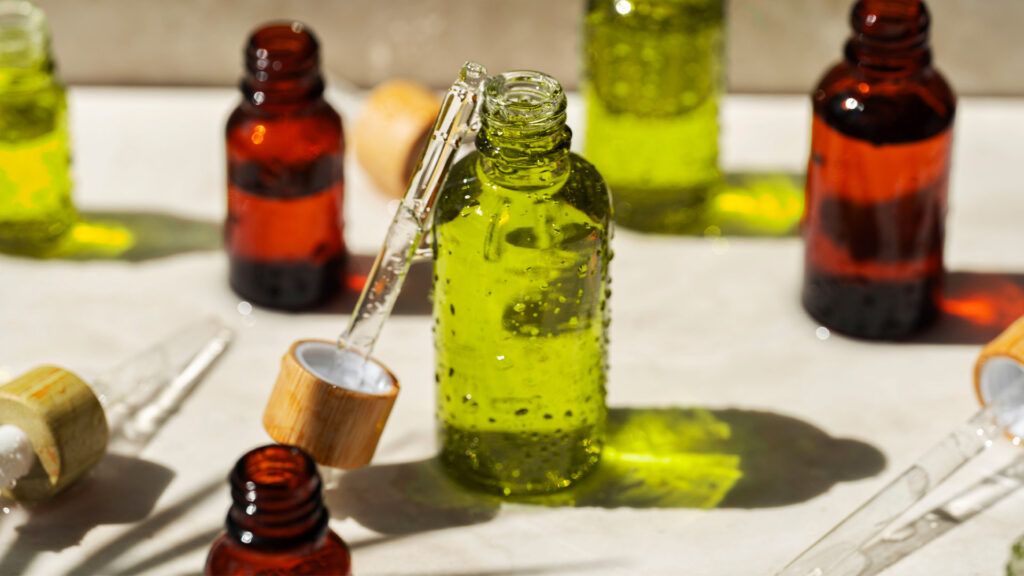Some people believe that essential oils can help to improve heart health. However, limited evidence exists, and experts need to conduct more research.
Cardiovascular diseases are the leading cause of mortality in the United States. According to the Centers for Disease Control (CDC), they account for around
Maintaining heart health involves a
Essential oils have gained popularity in recent years for their
This article looks at which essential oils may improve heart health.
Although research suggests essential oils may have some health benefits, it is important to remember that the Food and Drug Administration (FDA) does not monitor or regulate the purity or quality of these oils. A person should talk with a healthcare professional before using essential oils and research the quality of a particular brand’s products. It is also important to always do a patch test before trying a new essential oil.

There is insufficient recent scientific research on the direct effects of essential oils on heart health. The available studies are generally preliminary or based on animal or in vitro (laboratory) experiments.
While some essential oils may have compounds with properties that could theoretically support heart health, such as anti-inflammatory or antioxidant effects,
Learn more about improving heart health.
Research suggests that a type of basil known as “holy basil” may have a role in lowering low-density lipoprotein (LDL) cholesterol levels.
People often call LDL cholesterol “bad” cholesterol because it can
Basil extract has shown potential in
Read more about basil.
There is some evidence to suggest that bergamot essential oil may play a role in treating cardiorenal metabolic syndrome. This is where cardiovascular, renal, and metabolic diseases overlap and coexist in the same person.
A
Read more about bergamot.
Cassia essential oil comes from a type of cinnamon. Some
While people may less commonly discuss it with regards to heart health than other oils, cassia may have potential benefits due to its anti-inflammatory properties. Inflammation is a
Read more about cinnamon.
Some people believe clary sage essential oil has calming and hormone-balancing effects. Hormonal imbalances, especially in females, can
Clary sage may help manage hormone-related stress and discomfort, potentially promoting cardiovascular wellness.
Read more about clary sage oil.
Ginger essential oil may have
High blood lipids are a main contributor to atherosclerosis and, later, heart disease.
A
Read more about ginger.
Some
According to a study published in
In animal studies, researchers observed that lavender essential oil played a role in regulating elevated blood sugar levels and protecting against oxidative stress. Oxidative stress can
Read more about lavender.
Researchers in
Reducing stress can
Saffron is another essential oil under investigation for its potential to help improve heart health. Older animal and laboratory
Additionally, it may help prevent the blockage of blood vessels and arteries, according to
Read more about saffron.
Some people
One older
Using essential oils for heart health can carry certain risks, and people should exercise caution when considering trying them.
Some of the risks include:
- allergic reactions
- ingestion
- interactions with medications
- respiratory issues
- skin irritation
Also, individual responses to aromatherapy can vary. What works well for one person may not have the same effect on another.
Early detection and intervention can be crucial in managing and helping to prevent heart-related conditions. People should speak with a doctor if they have concerns about the health of their heart.
Signs that warrant a conversation with a healthcare professional
- rapid or irregular heart rate
- sensation of the heart fluttering
- chest pain or discomfort that lasts for more than a few minutes or occurs regularly
- unexplained shortness of breath, especially if it occurs with minimal physical exertion or at rest
- a family history of heart disease or stroke
- chronic stress or anxiety
As well as the above warning signs, having routine screenings and assessments can help monitor heart health and identify potential issues early.
A person should not use essential oils as a primary or sole treatment for heart-related conditions.
Lifestyle factors such as a balanced diet, regular exercise, stress management, and following a healthcare professional’s recommendations should always come first.
However, if a person’s healthcare team approves using essential oils, they may be a harmless complementary therapy.
